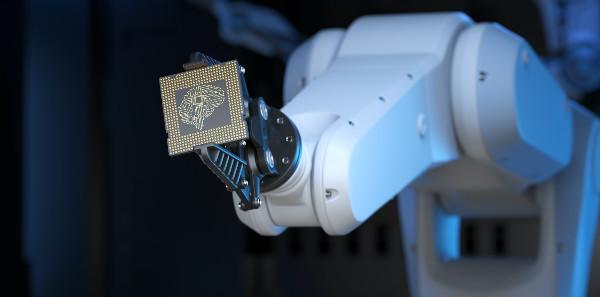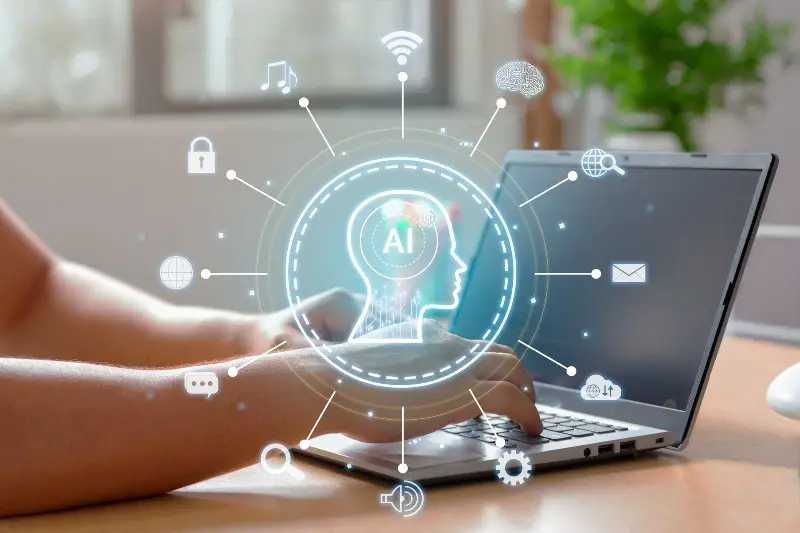Introduction:
Artificial intelligence (AI) is rapidly developing, and with it comes a number of ethical implications. As AI becomes more powerful, it is important to consider how it will be used and what the potential consequences could be.
In this blog post, we will explore some of the ethical implications of AI. We will discuss the potential for AI to be used for good and for evil, and we will consider the role of humans in the development and use of AI.
Defining the Moral Boundaries of Artificial Intelligence:
One of the key ethical challenges posed by AI is the question of how to define its moral boundaries. AI systems are becoming increasingly sophisticated, and they are capable of making decisions that have a significant impact on human lives. However, it is not always clear what the moral implications of these decisions are.
For example, consider the case of an AI-powered self-driving car. If the car is faced with a situation where it must choose between hitting a pedestrian or swerving off the road and crashing into a tree, what should it do? There is no easy answer to this question, and it is one that will need to be carefully considered as AI technology continues to develop.
How might AI-based tools impact the future job market for tax preparation professionals?
The Philosophy of Artificial Intelligence: A Deep Dive:
The philosophy of artificial intelligence (AI) is a branch of philosophy that deals with the nature of AI, its potential impact on society, and the ethical implications of its use.
Philosophers of AI have explored a wide range of topics, including:
- The nature of intelligence: What is intelligence, and how can it be defined?
- The possibility of artificial intelligence: Is it possible to create machines that are truly intelligent?
- The impact of AI on society: How will AI change the way we live, work, and play?
- The ethical implications of AI: What are the ethical issues raised by the development and use of AI?
The philosophy of AI is a rapidly growing field, and there is no single answer to any of the questions that philosophers of AI are grappling with. However, by thinking deeply about these issues, we can help to ensure that AI is used for good and not for harm.
Here are some recent examples of philosophical work on AI:
- In 2022, the philosopher John Searle published a paper arguing that AI will never be truly intelligent because it lacks the ability to understand the meaning of symbols.
- In 2021, the philosopher Nick Bostrom published a book arguing that the development of superintelligent AI could pose an existential risk to humanity.
- In 2020, the philosopher David Chalmers published a paper arguing that the possibility of conscious machines cannot be ruled out.
The philosophy of AI is a complex and fascinating field, and it is sure to continue to be a topic of debate for many years to come.
AI Ethics: Balancing Progress and Responsibility:
As AI technology continues to develop, it is important to find a way to balance the potential benefits of AI with the potential risks. This means developing AI systems that are aligned with human values, and it means ensuring that AI is used in a responsible way.
There are a number of things that can be done to promote responsible AI development and use. These include:
- Developing ethical guidelines for AI development and use.
- Creating international standards for AI governance.
- Educating the public about the ethical implications of AI.
- Supporting research into the ethical dimensions of AI.
By taking these steps, we can help to ensure that AI is used for good and not for evil.

Navigating the Convergence: Artificial Intelligence and the Legal Sphere
Artificial Intelligence (AI) has transformed multiple sectors, including the field of law. This blog post delves into the legal aspects of AI, the regulatory landscape, and AI’s role in legal practice. It also explores AI’s impact on privacy law and the ethical quandaries it presents. A comprehensive look at the intriguing intersection of AI and law.
The Ethical Debate Surrounding Artificial Intelligence:
Artificial intelligence (AI) is a rapidly developing technology with the potential to revolutionize many aspects of our lives. As AI becomes more sophisticated, it is important to consider the ethical implications of its use.
One of the key ethical challenges posed by AI is the question of how to define its moral boundaries. In other words, what should AI be allowed to do? And what should it be prevented from doing?
There are a number of different perspectives on this issue. Some people believe that AI should be subject to the same moral rules as humans. Others believe that AI should be allowed to operate outside of these rules, as long as it does not harm humans. Still others believe that AI should be given its own set of moral rules, tailored to its unique capabilities.
There is no easy answer to the question of how to define the moral boundaries of AI. However, it is important to start thinking about this issue now, before AI becomes too powerful to control.
Here are some recent examples of positive and negative uses of AI:
Positive:
- AI is being used to develop new medical treatments and diagnostics. For example, AI-powered image analysis is being used to detect cancer cells in medical images with greater accuracy than human doctors.
- AI is being used to improve transportation and logistics. For example, AI-powered self-driving cars are being developed that could revolutionize transportation and make roads safer.
- AI is being used to create new forms of art and entertainment. For example, AI-generated music and movies are becoming increasingly popular.
Negative:
- AI is being used to develop new weapons systems that could be used to kill or injure people. For example, AI-powered drones are being developed that could be used to carry out targeted assassinations.
- AI is being used to spread misinformation and propaganda. For example, AI-powered bots are being used to create fake news articles and social media posts that are designed to sow discord and division.
- AI is being used to exploit people for financial gain. For example, AI-powered algorithms are being used to target people with predatory loans and investments.
Lorem ipsum dolor sit amet, consectetur adipiscing elit. Ut elit tellus, luctus nec ullamcorper mattis, pulvinar dapibus leo.
Lorem ipsum dolor sit amet, consectetur adipiscing elit. Ut elit tellus, luctus nec ullamcorper mattis, pulvinar dapibus leo.
Step into the fascinating world of the present, where artificial intelligence (AI) is not a distant dream, but a thrilling reality. Experience the seamless integration of AI in your everyday gadgets – your smartwatch, the intuitive smart speaker, the diligent security alarm, or the customer service chat box – all are manifestations of the awe-inspiring AI technology. Curious about the behind-the-scenes of AI creation? Pondering if AI is actually real? The enlightening ‘Artificial Intelligence For Dummies’ has all the answers you seek.
Commencing with a fundamental understanding of AI, this reference demystifies the intricate topic of AI for you. From the usage of data, algorithms, to the specialized hardware, the book is an easy-to-understand guide to the universe of AI that breathes life into the devices you simply can’t do without.
Here’s what the book promises to offer:
- Debunk the hyperbole surrounding artificial intelligence and get a true picture
- Delve into the astonishing capabilities of AI and learn about its boundaries
- Learn how AI accelerates data collection and analysis, enabling faster, informed decisions
- Explore how AI breathes life into hardware applications such as drones, robots, and vehicles
- Discover the potential applications of AI in diverse fields like space, medicine, and communication that are on the horizon
It’s worth noting that nearly 80% of the devices you interact with on a daily basis rely on some form of AI. While you don’t need to understand AI to use your smart speaker or engage with a bot, possessing knowledge about its inner workings will undoubtedly make you feel smarter. So, why wait? Grab this accessible guide today and unravel the captivating secrets of AI!





